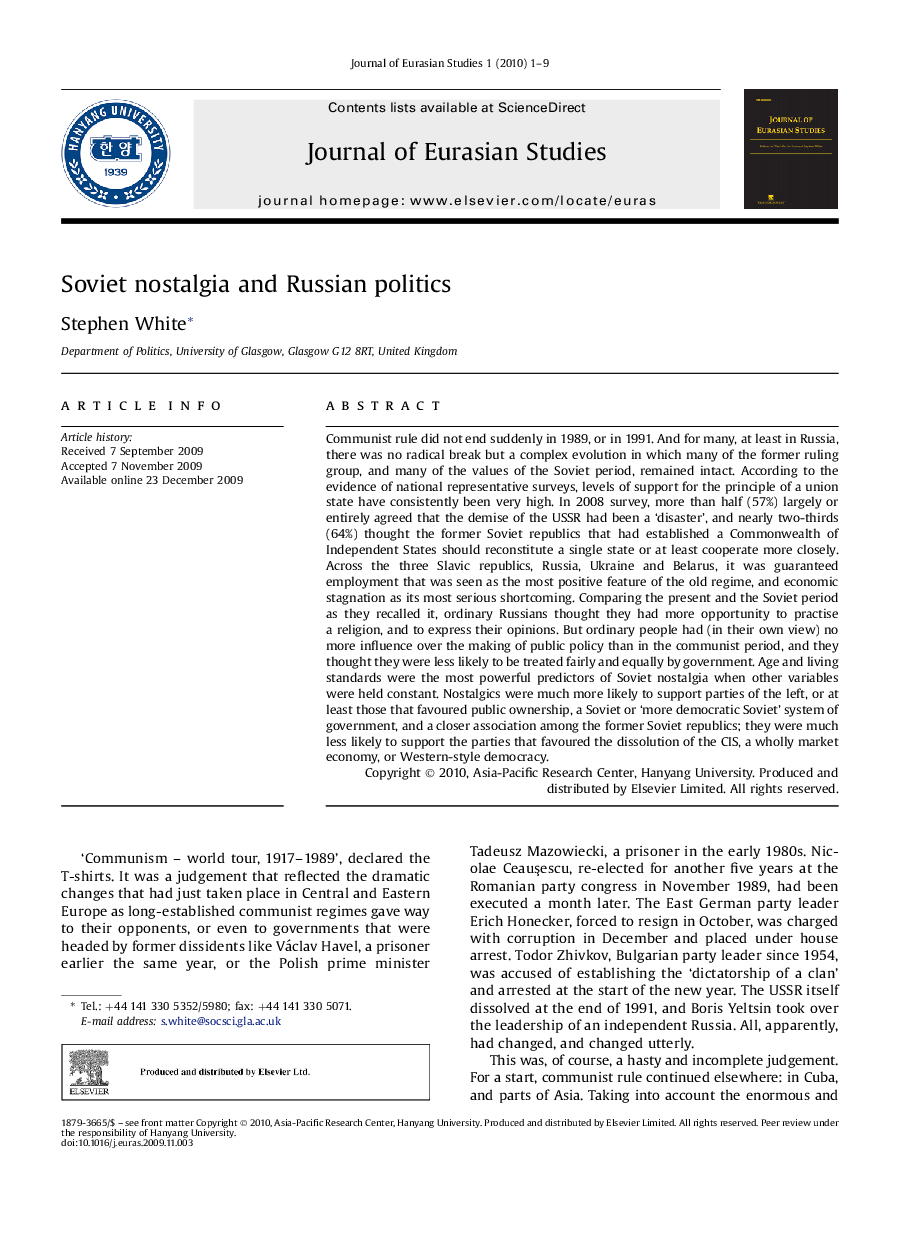| Article ID | Journal | Published Year | Pages | File Type |
|---|---|---|---|---|
| 1127333 | Journal of Eurasian Studies | 2010 | 9 Pages |
Communist rule did not end suddenly in 1989, or in 1991. And for many, at least in Russia, there was no radical break but a complex evolution in which many of the former ruling group, and many of the values of the Soviet period, remained intact. According to the evidence of national representative surveys, levels of support for the principle of a union state have consistently been very high. In 2008 survey, more than half (57%) largely or entirely agreed that the demise of the USSR had been a ‘disaster’, and nearly two-thirds (64%) thought the former Soviet republics that had established a Commonwealth of Independent States should reconstitute a single state or at least cooperate more closely. Across the three Slavic republics, Russia, Ukraine and Belarus, it was guaranteed employment that was seen as the most positive feature of the old regime, and economic stagnation as its most serious shortcoming. Comparing the present and the Soviet period as they recalled it, ordinary Russians thought they had more opportunity to practise a religion, and to express their opinions. But ordinary people had (in their own view) no more influence over the making of public policy than in the communist period, and they thought they were less likely to be treated fairly and equally by government. Age and living standards were the most powerful predictors of Soviet nostalgia when other variables were held constant. Nostalgics were much more likely to support parties of the left, or at least those that favoured public ownership, a Soviet or ‘more democratic Soviet’ system of government, and a closer association among the former Soviet republics; they were much less likely to support the parties that favoured the dissolution of the CIS, a wholly market economy, or Western-style democracy.
